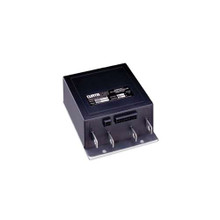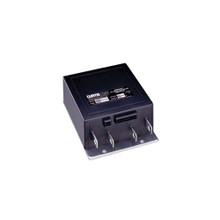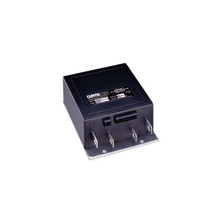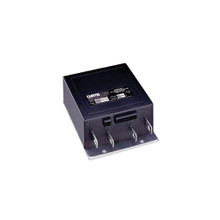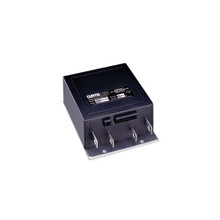- Home
- Forklift Parts
- Electrical
- MODEL 1207
- 1207-1118 24/36V 250A (0-5V) Pmc
- Home
- Search By Make
- Forklift Parts
- Curtis Instruments
- MODEL 1207
- 1207-1118 24/36V 250A (0-5V) Pmc
Curtis 1207-1118 24/36V 250A (0-5V) Pmc
The Curtis 1207-1118 PMC controller is a vital component in industrial machines and is known for its efficiency in managing speed and power. Specifically designed for 24/36V applications, it delivers up to 250A, ensuring optimal performance.
Set up requires aligning it with the machine’s interface, securely connecting the wires, and calibrating the 0-5V range for precise control. When it comes to maintenance, understanding its internal circuitry is key.
If performance issues arise, checking connections and measuring output voltages can often pinpoint the problem. Replacing the controller involves carefully removing the old unit, ensuring the new one matches specification-wise, and following installation steps.
Its role in regulating speed and ensuring smooth operation makes it an indispensable part of many industrial machines. The Curtis PMC controller enhances machine efficiency and longevity with proper installation and maintenance.
Technical Manual: 1207 07A Manual
|
Suggested Accessories |
77-1207-1104, 77-1207-1125, 77-1207-1144 |
Product Specifications
|
Part Type |
Controller |
|
Brand |
Curtis |
|
Voltage Range |
24-36 V |
|
Minimum Electrical Isolation |
Due to Heatsink: 500 VAC |
|
Operational Voltage (Max) |
45 V |
|
Operational Voltage (Min) |
16 V |
|
Undervoltage |
16 V |
|
Overvoltage |
48 V |
|
1 Minute Current Rating |
250 A |
|
2 Minutes Current Rating |
200 A |
|
5 Minutes Current Rating |
150 A |
|
1 Hour Current Rating |
100 A |
|
KSI Input Voltage |
16-45 V |
|
Input Current |
W/o Programmer: 80 mA W/ Programmer: 130 mA |
|
Input Voltage |
8 V |
|
Input Current |
10 mA @ 24 V |
|
Current Limit Range |
250-300 A |
|
Operating Frequency |
15 kHz |
|
Throttle Input |
0-5 V |
|
Ambient Temperature (Operational) |
-25°C to 50°C |
|
Undertemperature Cutback (Heatsink) |
-25°C |
|
Overtemperature Cutback (Heatsink) |
85°C |
|
Length |
165 mm |
|
Width |
122 mm |
|
Depth |
60 mm |
|
Cross References |
CL7007846, CT1207-1118, HU3177771R, PHAX00001407, YP1500238-71R, 7007846, 1207-1118, 3177771R, AX00001407, 1500238-71R |
Features and Benefits:
-
Offers precise speed control for a variety of industrial machines.
-
Compatible with both 24V and 36V systems, providing versatile usage.
-
A high current output of 250A supports robust operations.
-
Durable construction ensures long-lasting performance.
-
Provides smooth acceleration and deceleration, enhancing machine handling.
-
Low maintenance requirements reduce operational costs.
-
The adjustable 0-5V range offers customizable control settings.
-
Enhances overall machine efficiency and productivity.
Recommended Use/Applications
-
Suitable for electric golf carts on courses and in resorts.
-
Enhances the performance of electric utility vehicles in parks.
-
Perfect for automated guided vehicles in industrial settings.
-
Efficient for small electric tractors in agriculture.
-
Useful in electric sweepers and scrubbers for cleaning.
-
Optimal for electric tugs in airports and hospitals.
-
Beneficial for retrofitting older industrial electric vehicles.
-
Applicable in electric-powered aerial work platforms.
-
Great for small electric boats in marinas and lakes.
Frequently Asked Questions
What functions does a Curtis PMC controller perform?
The controller regulates speed and acceleration in electric vehicles, ensuring smooth and efficient operation.
Is this controller compatible with various electric vehicle models?
Yes, its versatile design allows it to work with a wide range of electric vehicles, both 24V and 36V systems.
Can the Curtis 1207-1118 handle high power demands?
Absolutely, with a 250A output, it can support robust operations in industrial environments.
What maintenance is required for this speed controller?
Regular checks of connections and output voltages are sufficient for maintaining its performance.
Does the controller aid in energy efficiency?
Yes, optimizing speed and acceleration contributes to the vehicle's energy efficiency.
Is technical expertise required to operate the controller?
A basic understanding of electric vehicle systems is enough for effective use and troubleshooting.
 Loading... Please wait...
Loading... Please wait...








